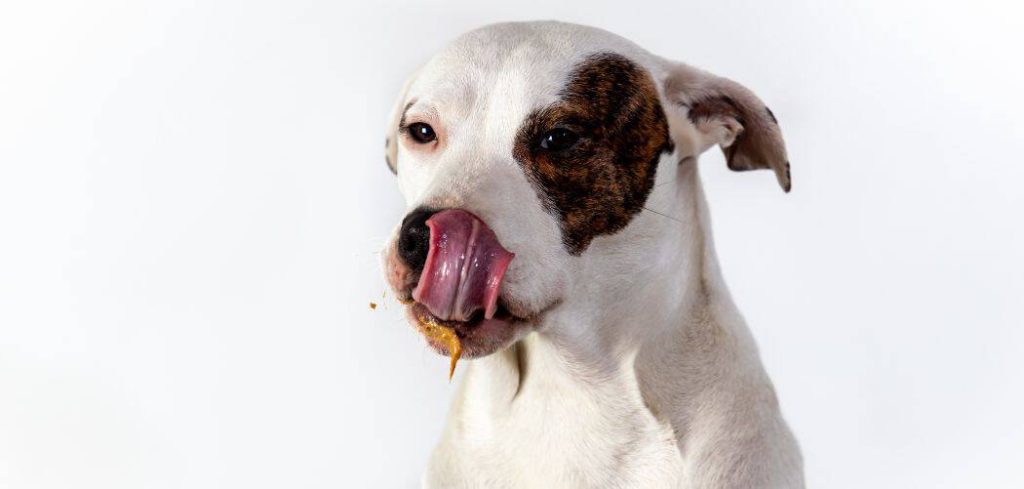Dogs use their paws for nearly everything, so when a dog suddenly starts licking one or both paws excessively, it can be concerning. This behavior might point to discomfort or an underlying health issue that requires attention.
We outline the common causes of sudden excessive paw licking in dogs, what you can do at home, and when to seek veterinary help.
Dog Licking Paw Excessively Suddenly — Why It Happens
Sudden excessive paw licking in dogs usually signals irritation, pain, or a medical condition affecting the skin or underlying tissues. It may be triggered by allergies, injuries, infections, parasites, or even behavioral issues such as anxiety. Some dogs lick to soothe discomfort, while others may do so because of something lodged in the paw.
Regardless of the cause, it’s important to identify the trigger early to prevent complications and provide relief.

Sudden Excessive Paw Licking in Dogs: Common Causes
Allergies
Dogs commonly develop allergies to food, pollen, or household irritants. Allergic reactions often cause itching, and the paws are a prime target because they come into direct contact with allergens on the ground.
You may notice redness, swelling, or chewing alongside the licking. If untreated, constant licking can lead to secondary infections that worsen the irritation.
Read more: Dog Licking Everything Excessively Suddenly (What it could mean)
Foreign Objects or Paw Injuries
A sudden onset of paw licking may indicate that something is stuck between your dog’s toes or pads, such as a splinter, thorn, or piece of glass.
Even minor cuts or abrasions can be very uncomfortable. Dogs instinctively lick wounds to soothe them, but excessive licking can delay healing or cause infection. Limping or favoring the paw may also be present.
Yeast or Bacterial Infections
Moisture trapped between paw pads creates the perfect environment for yeast and bacteria to thrive.
Infections often develop suddenly and can cause redness, odor, swelling, and persistent licking.
Dogs with chronic paw infections may repeatedly show these signs, and without treatment, infections can spread and become painful.
Parasites
Fleas, ticks, or mites can make a dog’s paws unbearably itchy. Sarcoptic mange (scabies) or demodex mites can cause intense irritation that drives dogs to lick constantly.
You may notice hair loss, sores, or scabs in addition to licking. Because parasites spread quickly and cause significant discomfort, they need prompt veterinary care.
Pain or Arthritis
Sometimes, excessive licking isn’t about the skin but about deeper pain. Dogs with arthritis, sprains, or fractures may focus on licking their paws or joints as a self-soothing behavior.
If your dog is older, stiff, or reluctant to put weight on a leg, pain may be the underlying reason for the sudden licking.
Anxiety or Compulsive Behavior
In some cases, paw licking isn’t physical at all but behavioral. Dogs under stress, boredom, or anxiety may resort to repetitive licking as a coping mechanism.
Over time, this can turn into a compulsive habit that damages the skin and fur around the paw. Identifying and addressing the emotional trigger is crucial in these cases.
What to Do If Your Dog Is Suddenly Licking Its Excessively
If your dog suddenly begins licking its paw, start with a close inspection. Look for any cuts, thorns, swelling, or visible debris.
Cleaning the paw gently with warm water can remove irritants and allow you to see more clearly.
If allergies seem likely, wiping your dog’s paws after outdoor walks may help reduce exposure to allergens.
Hypoallergenic wipes or a damp cloth can limit pollen or dust contact. Some owners find paw balms soothing for irritated pads.
For mild cases, discouraging licking with an Elizabethan collar or protective bootie may prevent self-injury while you monitor the paw. Providing enrichment activities and mental stimulation can also help reduce anxiety-driven licking.
If symptoms persist, worsen, or are accompanied by other health issues, professional veterinary care is needed to diagnose and treat the root cause.
Read more: Dog Licking Paws Excessively (What it could mean)
When to Call or Visit Your Vet
If your dog’s paw is bleeding, visibly injured, or swollen, immediate veterinary attention is necessary. A foreign body, such as a piece of glass or metal, can cause rapid infection if left untreated.
Seek help if your dog’s paw shows signs of infection such as redness, heat, foul odor, or pus. These conditions require medication to resolve.
Dogs that lick excessively due to pain, limping, or difficulty walking should be evaluated promptly, as joint problems or fractures may be the source.
If the licking does not improve within a day or two of home care, or if it worsens, contacting a vet ensures your dog gets the correct treatment.
Read more: Dog Licking and Swallowing Excessively Suddenly (When it’s a red flag)
Key Takeaway
A dog licking its paw excessively and suddenly is a sign that something is wrong, whether it’s an injury, infection, allergy, or emotional stress.
While some causes are minor and manageable at home, others require veterinary care to prevent worsening symptoms.
Pay close attention to changes in your dog’s behavior and health, and don’t hesitate to consult a professional when in doubt. Early action can relieve discomfort and protect your dog’s long-term wellbeing.
